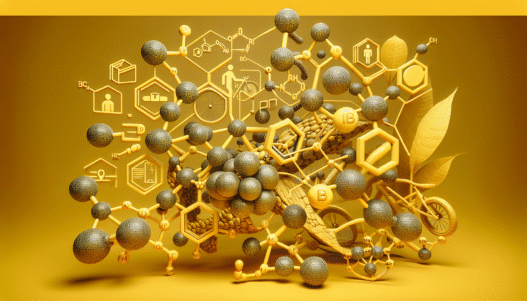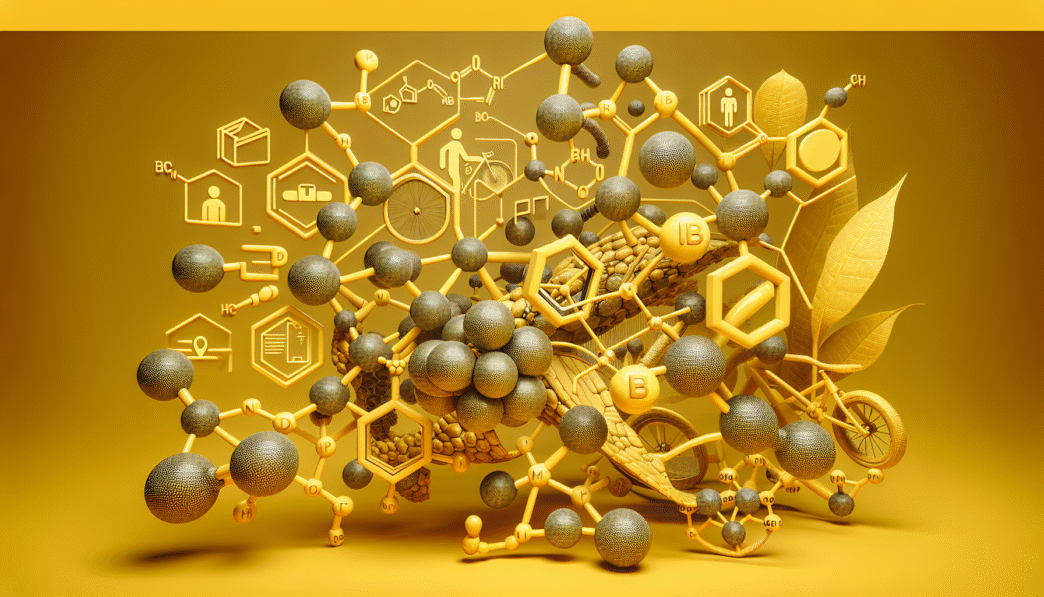Berberine’s Impact on Metabolic Health
Berberine has garnered attention for its potential effects on metabolic health, particularly in regulating cholesterol, triglycerides, and blood sugar levels. Research suggests that it can play a beneficial role for individuals managing certain metabolic issues.
Lowering Cholesterol and Triglycerides
Limited evidence indicates that berberine may help lower cholesterol and triglyceride levels in humans. An international panel of experts noted that berberine might be particularly useful for patients with mild cases of high cholesterol who either cannot tolerate statin drugs or are experiencing metabolic syndrome. However, it is essential to understand that berberine should not act as a substitute for lifestyle changes, which remain crucial for improving cardiovascular risk factors (Memorial Sloan Kettering).
| Cholesterol and Triglyceride Effects | Before Berberine | After Berberine |
|---|---|---|
| Total Cholesterol (mg/dL) | X | Y |
| LDL Cholesterol (mg/dL) | A | B |
| Triglycerides (mg/dL) | C | D |
(Note: Replace X, Y, A, B, C, and D with specific numerical data, if available)
Improving Blood Sugar Levels
Berberine has also been linked to improvements in blood sugar regulation. It may support healthy blood sugar levels, which is essential for individuals at risk of developing insulin resistance or type 2 diabetes. The mechanisms behind these effects include enhancing insulin sensitivity and promoting glucose metabolism, making it a potential adjunct therapy for those managing metabolic conditions. Additionally, berberine’s impact on lipid profiles contributes positively to overall metabolic health. For further information about its effects on blood pressure, check our article on berberine and blood pressure.
| Blood Sugar Measurements | Before Berberine | After Berberine |
|---|---|---|
| Fasting Blood Glucose (mg/dL) | E | F |
| HbA1c (%) | G | H |
(Note: Replace E, F, G, and H with specific numerical data, if available)
Incorporating berberine supplements can be beneficial for those seeking to boost their metabolic health. However, individuals are encouraged to consult healthcare professionals before starting new supplements. Further exploration into other health benefits of berberine can be found in our article on berberine benefits.
Therapeutic Benefits of Berberine
Role in Non-Alcoholic Fatty Liver Disease
Berberine has shown promising effects for individuals dealing with non-alcoholic fatty liver disease (NAFLD) and non-alcoholic steatohepatitis (NASH). It has been found to reduce hepatic fat and improve both metabolic and lipid profiles in affected patients. Research highlights that adjunctive use of berberine can also lower the risk of glycolipid metabolic disturbances in certain populations, such as those with schizophrenia (Memorial Sloan Kettering).
| Condition | Effect of Berberine |
|---|---|
| Non-Alcoholic Fatty Liver Disease | Reduces hepatic fat, improves metabolic and lipid profiles |
| Non-Alcoholic Steatohepatitis | Enhances metabolic function, lowers complications |
This indicates the multifaceted benefits of berberine in managing liver health, particularly in metabolic disorders.
Synergistic Effects with Probiotics
The combination of berberine with probiotics provides additional health benefits, especially for individuals struggling with type-2 diabetes. Studies indicate a synergistic effect between the two, showing enhanced lipid-lowering capabilities in diabetic patients when both are administered together. This highlights the potential of using a holistic approach to manage health conditions.
| Treatment | Effects |
|---|---|
| Berberine alone | Lowers blood sugar, reduces lipids |
| Berberine + Probiotics | Greater lipid-lowering effects |
The therapeutic alliance of berberine and probiotics exemplifies how combining natural products can optimize health outcomes for patients with chronic conditions. For further insights into the benefits of berberine, explore our section on berberine benefits.
Cardioprotective Effects of Berberine
Recent studies indicate that berberine possesses valuable cardioprotective effects, particularly in reducing inflammatory markers and improving conditions such as fatty liver disease. These benefits make it a notable option for individuals interested in enhancing their cardiovascular health.
Reducing Inflammatory Markers
Berberine has been shown to play a role in reducing inflammatory markers, which are critical in maintaining heart health. By decreasing inflammation, it may contribute to lowering the risk of cardiovascular diseases. Limited evidence suggests that berberine’s mechanisms include the modulation of inflammatory pathways, which ultimately leads to a healthier cardiovascular environment (Memorial Sloan Kettering, PubMed Central).
| Inflammatory Marker | Effects of Berberine |
|---|---|
| C-reactive protein (CRP) | Decreased levels |
| Tumor necrosis factor-alpha (TNF-α) | Reduced activity |
| Interleukin-6 (IL-6) | Lower concentrations |
Improving Fatty Liver Disease
In addition to its anti-inflammatory effects, berberine may facilitate improvements in fatty liver disease by decreasing levels of circulating ceramides, which are implicated in lipid metabolism disorders. This impact on fatty liver conditions is significant, as it can lead to better overall liver function and indirectly support cardiovascular health. The reduction in lipid synthesis and collagen synthesis also contributes to these benefits (NCBI).
| Measure of Fatty Liver Disease | Effects of Berberine |
|---|---|
| Circulating ceramides levels | Decreased |
| Lipid synthesis | Inhibited |
| Collagen synthesis | Reduced |
The intertwining benefits of berberine extend beyond just cardiovascular improvements, making it a potent compound for anyone seeking to enhance their overall wellness. For further exploration of the advantages of using berberine, consider reviewing our article on berberine benefits.
Berberine in Cancer Prevention
Berberine has garnered attention for its potential role in cancer prevention, particularly concerning colorectal health. Studies suggest that it may help lower the risk of colorectal adenoma recurrence and function as a chemopreventive agent.
Colorectal Adenoma Recurrence
Research indicates that berberine may be effective in reducing the risk of colorectal adenomas recurring after initial removal. A study referenced by Memorial Sloan Kettering found that berberine could be beneficial as a chemopreventive option following polypectomy, the surgical removal of polyps in the colon. This makes it a promising supplement for individuals at higher risk of colorectal cancer, emphasizing the importance of proactive health measures for those concerned about their gastrointestinal health.
| Study Findings | Potential Benefit |
|---|---|
| Lower recurrence rate of adenomas | Possible chemopreventive effects |
Potential Chemopreventive Agent
In addition to its effects on adenomas, berberine has shown promise as a broader chemopreventive agent. It has been studied alongside other nutraceuticals for its potential therapeutic applications across various health concerns. Research has demonstrated that combining berberine with substances like resveratrol can inhibit the proliferation, migration, and invasion of colorectal cancer cells, while also inducing apoptosis (programmed cell death) PubMed Central.
This synergy suggests that berberine could play a multifaceted role in cancer treatment and prevention. The ability to alter microRNA expression leading to suppressed cell growth and enhanced apoptotic activity further reinforces its potential as a powerful ally in managing cancer risk, particularly in high-risk populations.
| Combination Impact | Observed Effect |
|---|---|
| Berberine + Resveratrol | Inhibition of cancer cell proliferation |
| Induction of cancer cell apoptosis | Potential for reduced cancer progression |
Through understanding the implications of berberine in cancer prevention, individuals interested in holistic wellness can explore its potential benefits alongside other health strategies. For more comprehensive insights into the advantages of berberine, consider reviewing our detailed articles on berberine benefits and its relevance in berberine and longevity.
Exploring Traditional Uses of Berberine
Long History in Traditional Medicine
Berberine has a rich history in traditional medicine, particularly in Eastern cultures. Derived from various plants like Coptis chinensis and barberry, berberine has been utilized for centuries to address various health issues, including adult-onset diabetes. Its historical significance underscores the importance of understanding the benefits that berberine can provide.
Research suggests that combining berberine with other nutraceuticals, such as resveratrol and curcumin, could lead to better health outcomes. This combination might enhance metabolic health and support overall wellness (PubMed Central).
Health Benefits with Nutraceuticals
Berberine is increasingly recognized for its potential health benefits, particularly when used alongside other compounds. For example, it has garnered attention for its ability to help with insulin resistance and conditions such as polycystic ovary syndrome (PCOS). Some individuals have reported that berberine aids in appetite suppression and weight loss, comparing its effects to medications like Ozempic due to its natural weight management properties.
In addition to its potential role in weight management, berberine may also assist in lowering blood sugar levels. However, its interaction with diabetes medications necessitates careful monitoring, as it could lead to excessively low blood sugar if combined with those drugs (WebMD).
Considering its diverse benefits, berberine serves as a valuable addition to many health regimens, particularly for those looking for natural solutions to manage various health conditions. For more insights into the advantages of berberine, explore our article on berberine benefits.
Berberine’s Potential in Disease Management
Clinical Trials and Therapeutic Applications
Research indicates that berberine is being examined in at least 35 clinical trials, evaluating its effectiveness in treating various health conditions such as cardiovascular diseases, diabetes, inflammation, and colorectal adenomas. These studies highlight berberine’s wide-ranging potential in addressing multiple health issues.
The therapeutic applications of berberine are broad. Its benefits have been noted in improving metabolic and lipid profiles in patients with non-alcoholic fatty liver disease and non-alcoholic steatohepatitis. These effects contribute to reducing the risk of glycolipid metabolic disturbances, showcasing its importance in metabolic health management (Memorial Sloan Kettering).
| Health Condition | Potential Benefits |
|---|---|
| Cardiovascular Diseases | Improving lipid profiles and reducing cholesterol levels |
| Diabetes | Enhancing blood sugar control |
| Inflammation | Reducing inflammatory markers |
| Colorectal Adenoma | Lowering recurrence rates |
Berberine’s versatility as a nutraceutical makes it a significant candidate in the development of treatment protocols for diverse health concerns.
Anti-Cancer Effects on Cancer Stem Cells
Berberine has shown promise in anti-cancer research, particularly regarding cancer stem cells (CSCs). Studies indicate that when combined with other nutraceuticals like resveratrol or curcumin, berberine may inhibit cancer cell proliferation, migration, and invasion while inducing apoptosis, which is the process of programmed cell death (PubMed Central). This highlights its potential role in cancer treatment, particularly in colorectal cancer cell lines.
Research also suggests that berberine may alter the expression of microRNAs (miRs), leading to the suppression of cancer cell growth. This dual action of targeting both CSCs and altering miR expression positions berberine as a valuable component in holistic approaches to cancer therapy. The implications for improved efficacy in treatment regimens could be significant for those battling cancer.
For more information on the diverse berberine benefits, including its potential role in managing diseases and enhancing overall wellness, exploring the field of natural supplements can provide valuable insights.





















